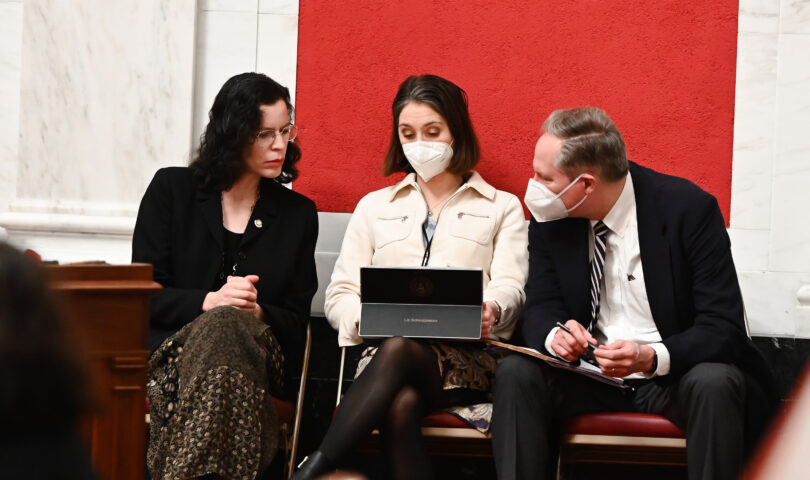MORGANTOWN – A divided state Senate on Friday adopted a resolution to rescind the state’s prior ratification of the Equal Rights Amendment. The fate of the ERA has been the subject of recent debates in Congress and this could add to the confusion if the House takes it up and adopts it.
SCR 44 is sponsored by all 23 GOP senators. Sen. Donna Boley, R-Pleasants is lead sponsor. The other two female GOP senators, Patricia Rucker, R-Jefferson, and Amy Grady, R-Mason, both signed on and Rucker explained the resolution on the Senate floor.
The resolution explains that the ERA was proposed in 1972. The amendment’s preamble set a seven-year deadline – March 22, 1979 – for it to be ratified by 38 states. West Virginia ratified it on April 22, 1972.
But the deadline wasn’t met, the resolution says, and West Virginia’s ratification lapsed at 11:59 p.m. on March 22, 1979. Therefore, the Legislature, “while in agreement women and men should enjoy equal rights in the eyes of the law,” should not be counted by the federal government as still having a live ratification on record.
Various news reports say that the 1979 deadline was pushed to 1982, but only 35 states had ratified it by then, and five of those withdrew their ratifications.
After a 40-year pause, three other states signed on: Nevada in 2017, Illinois in 2018 and Virginia on Jan. 27, 2020, finally putting the number at 38.
The text of the ERA set a two-year date for it to become part of the Constitution after the 38th state signed on, so on Jan. 27 this year, U.S. House Democrats introduced a resolution saying the ERA has met all the requirements to become part of the Constitution.
It passed and moved to the Senate, where some Republicans are blocking it. Sens. Rob Portman, R-Ohio, Ron Johnson, R-Wis., and Mitt Romney, R-Utah, sent a letter to the U.S. Archivist asking for his commitment to not certify the ERA.
They cite a January 2020 Department of Justice Office of Legal Counsel opinion that the deadline passed and the three recent ratifications are invalid. The National Archives and Records Administration said it would abide by that opinion. Also, in March 2021, a federal judge appointed by President Obama ruled that the deadline to ratify the ERA had expired.
However, a Jan. 27 OLC memo says Congress may pass a resolution lifting the deadline, and the issue is best left to Congress and the federal courts. On the same day, President Biden issued a statement asserting the ERA was ratified and calling on Congress to recognize that.
At this point, the news reports say, the validity of the DOJ’s OLC opinion, the actual ratification expiration date and the legitimacy of the rescinded ratifications all remain in question.
The Senate adopted the resolution in a divided voice vote. If the House adopts it, West Virginia would be the sixth state to rescind ratification and would drop the number back below the required 38.
Ransomware bill
The Senate unanimously passed SB 520, imposing penalties for ransomware attacks.
Such attacks have been around for years but came to recent prominence in May 2021 when an attack led to the shutdown of the Colonial Pipeline, which in turn led to gas price spikes, shortages in Southeast states, and panic hoarding in West Virginia even though the vast majority of the state’s supply comes from another pipeline.
While explaining the bill, Judiciary chair Charles Tump, R-Morgan, referred to a December ransomware attack that disrupted the work of the Virginia Legislature. “I guess its something we have to deal with in this modern world,” he said.
The bill imposes a fine of up to $1 million, imprisonment for up to 20 years, or both. “It has a pretty stout penalty,” Trump said.
The bill now goes to the House.
Tweet David Beard @dbeardtdp Email dbeard@dominionpost.com




